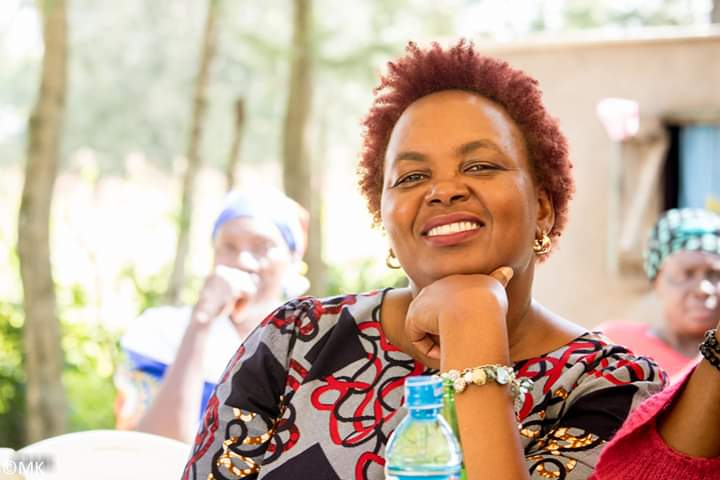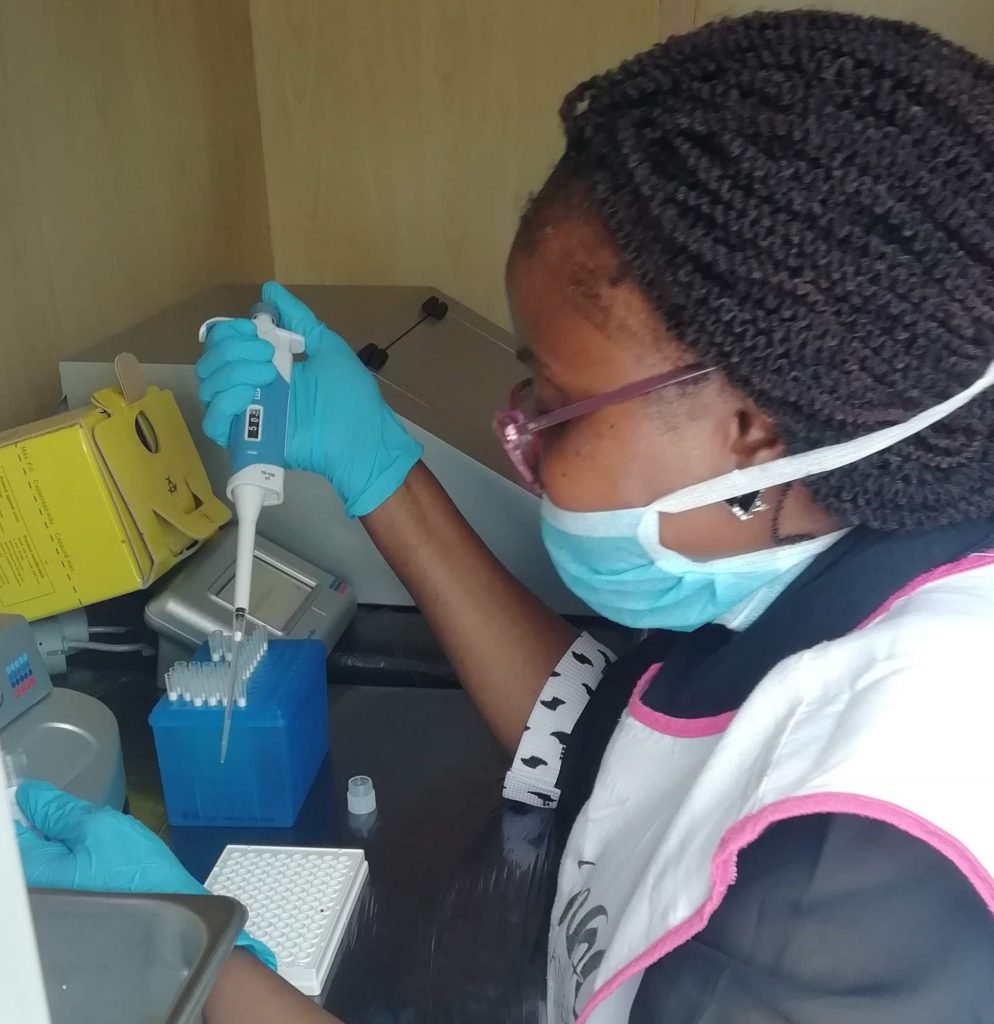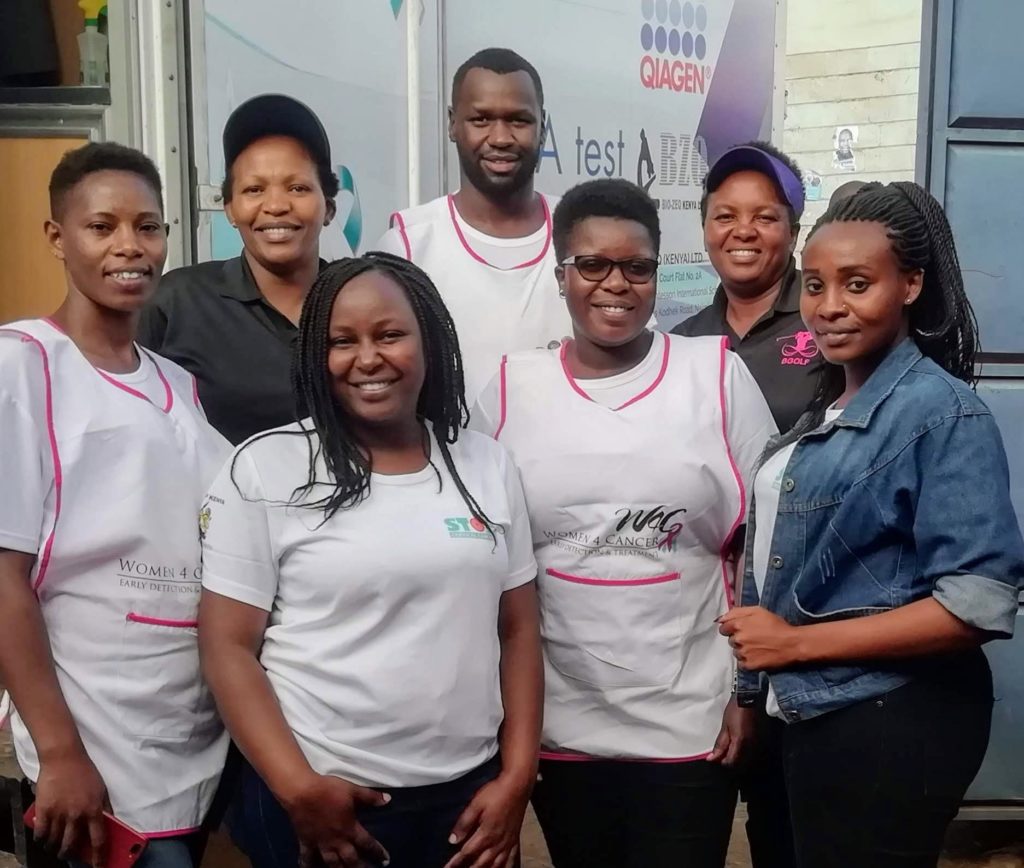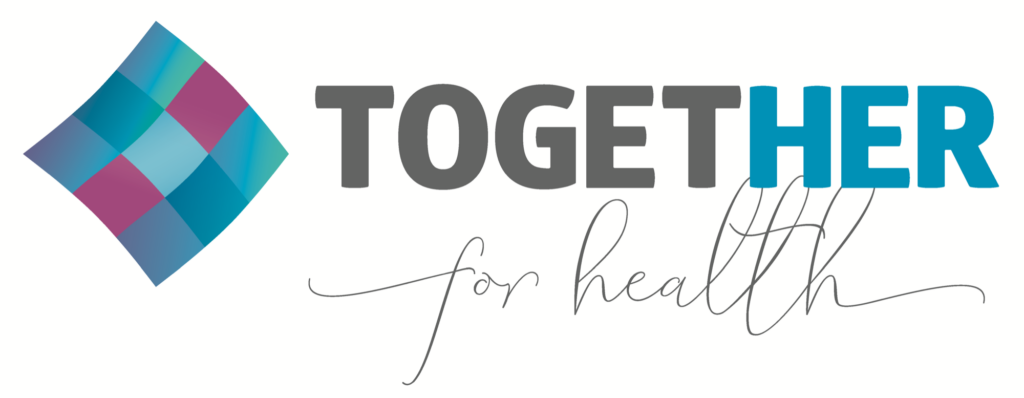The TogetHER Interview: Elizabeth Mbuthia, Co-Founding Member of Women 4 Cancer

-September 30, 2020
The impact of COVID-19 on global cervical cancer prevention efforts has been wide-ranging, with unclear long-term ramifications. Our new TogetHER Interview series provides an opportunity for key leaders in global cervical cancer control to discuss current challenges and provide perspective on where the field needs to go from here.
This installment in our TogetHER Interview series features Elizabeth Mbuthia, Co-Founder and Member of Women 4 Cancer.
Photo credit: Women 4 Cancer
How have you and your organization been impacted by and adapted to COVID-19?
Women 4 Cancer is a Kenya-based non-profit organization formed in 2012 to address the stigma associated with cervical cancer. We organize and conduct free cancer awareness health talks, free cervical cancer screening to the financially unempowered woman through medical camps, as well as spearheaded the uptake of the HPV vaccine among our girls following the national rollout in 2018.
With the onset of the COVID-19 pandemic and the restrictions put in place by the Government, we have had to cancel all screening activities as well as stakeholder engagement. This has led to missed opportunities to screen for cervical cancer which has been a huge setback to the strides we have made in the fight against cervical cancer. We have also lost opportunities in our efforts to drive the uptake of HPV vaccines for 10-year-olds. We are gradually changing our model to working with community health volunteers to do door-to-door sensitization about screening and self-collection of samples for testing. We have upped our use of social media to create more awareness about ongoing HPV vaccination despite the COVID-19 pandemic.

“We are gradually changing our model to working with CHVs to do door-to-door sensitization about screening and self-collection of samples for testing.
We have upped our use of social media to create more awareness about ongoing HPV vaccination despite the COVID-19 pandemic.“
Photo credit: Women 4 Cancer
What concerns you most about women’s health in low-resource countries during the pandemic? What is your organization doing about it?
We are concerned about loss of livelihoods and better social protection for our beneficiaries. Loss of income means the cancer patient will not have money to buy cancer drugs, go to the facility for treatment or even meet their dietary needs which leads to poor outcomes. We keep in constant touch with our beneficiaries to check on their health and how COVID-19 has affected them and areas of need.
Another concern is missed screening and HPV vaccination opportunities – most women are afraid to go for screening at the health facilities as well as to take their daughters to get the HPV vaccine due to fear of contracting COVID-19. To mitigate this, we have partnered with the Ministry of Health to organize for HPV DNA self-collection and sampling for women through the help of community health volunteers. We are also conducting social media and mass media campaigns to remind parents that it is safe to go to government health facilities as COVID-19 prevention measures are being adhered to.
Patients missing treatment for those with a cervical cancer diagnosis due to the fear of contracting COVID-19 in the health facilities as well as the redirected focus on COVID-19 by the Ministry of Health. We have lent our voice to civil society as it advocates for increased funding for PPEs for health workers, as well as donated masks to cancer patients undergoing treatment.

“We keep in constant touch with our beneficiaries to check on their health and how COVID-19 has affected them and areas of need.“
Photo credit: Women 4 Cancer
How do you see cervical cancer prevention – the HPV vaccine and screen-and-treat – coming back after the pandemic? What can we do now to prepare for the resumption of services?
We are considering resumption of community screening but with controlled numbers. Women4 Cancer is preparing standard operating procedures for screening that are COVID-19 compliant.
We are advocating for HPV DNA self-sampling which can be safely collected by women at a health facility or in the privacy of their homes with results communicated electronically or by phone. We shall continue to navigate those that require further assessment.
We’re also developing new messages and social media content for health communications that continue to encourage parents to take their girls to receive HPV vaccinations within their nearest health facilities.
What is something you have learned during COVID-19 that makes you hopeful?
We have seen the growth, resilience, flexibility and adaptability of our staff members and partners in embracing the new normal. Disruption of what we consider normal does not mean we cannot deal with cancer using innovative channels.
Interested in reading more TogetHER Interviews with leaders in the global cervical cancer response? Click here for the full list.

Elizabeth Mbuthia, a Co-founder member of Women 4 Cancer, sits on the Board in the dual role of Board Secretary and Head of Programs. She is a nurse by profession with a passion to eliminating cervical cancer.
